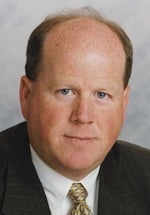There is a lot of talk about the mounting unemployment rate and the dismal economic conditions in Massachusetts.
Commercial office vacancy statistics are one good economic indicator. For example, the Boston Suburban Office market now posts a sizable 20.8 percent availability rate. Certainly, these are not stellar times. However, it is important to review the underlying statistics. For starters, there is just over 3 million square feet of office space for sublease. During the last recession the suburbs had more than 8 million square feet of sublease in 2003. Over the last couple of years, companies were very disciplined and showed restraint from leasing excess space. As a result, most companies do not have the burden of paying for substantial amounts of unused space.
Glass Half Full
Although the availability rate is quite high and rents have fallen by 25 percent on average, it should be noted that the Boston and Washington, D.C., areas are the strongest office markets in the country. In Massa-chusetts, industries driving the economy include technology/software, medical, and biotech/life sciences.
According to the U.S. Bureau of Labor Statistics, Massachusetts companies had a decrease in mass layoffs last month which is counter to the national trend. The U.S. Bureau of Labor Statistics defines a mass layoff as “a single action by a single employer that causes a least 50 workers to lose their jobs.” It will be interesting to see if this trend continues.
Fortunately, there is some positive news. Some of the companies in the Metrowest/Worcester area that are still growing include: BJ’s Wholesale Club and The MathWorks in Natick; Genzyme in Framingham; ikaSystems in Southborough; eClinicalWorks in Westborough; Sepracor in Marlborough; Aspen Aerogels in Northborough and Saint-Gobain in Worcester. One of the most exciting projects is the new 195,000-square-foot building planned for Unum at CitySquare in Worcester. This development will certainly have positive implications for downtown Worcester.
During the last recession, Massachusetts had a large inventory of recently completed buildings. Currently, there is very limited new construction. Over the last decade, most lenders required at least 25 percent equity in order to finance a commercial real estate transaction.
Despite economic conditions, there are very few commercial foreclosures and a limited inventory of buildings for sale. This, in part, is the result of conservative underwriting standards and a diverse economy. Com-mercial property values have declined, but Massachusetts has not experienced a massive devaluation.
The economy along with the commercial real estate industry will struggle near term and there are numerous challenges ahead. But Massachusetts maintains strong fundamentals. It also appears the residential market is close to rebounding. Massachusetts has not faced the severe economic conditions faced by other parts of the country. Fortunately, we appear to be in much better shape to return to prosperity in the near future.
By no means am I downplaying the struggles we face and the numerous challenges ahead for Massachusetts and the country. Simply put, during these trying times we should not take for granted our fortunes relative to other parts of the country.
Garry Holmes is the president of R.W. Holmes Realty in Wayland. He can be reached at gholmes@rwholmes.com.

